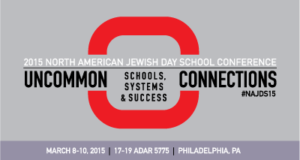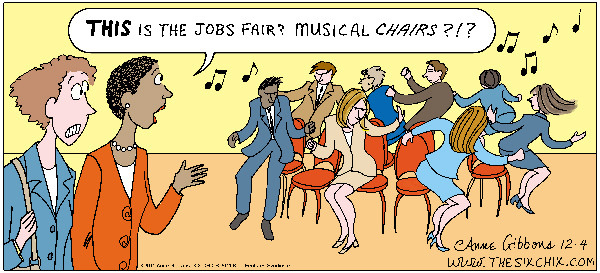This week was Yom Ha’Shoah, the day on the Jewish Calendar where we pause to remember the events of the Holocaust and the memories of all who perished therein. Next week we will celebrate Yom Ha’Zikaron, the day on the Jewish Calendar where we commemorate Israel’s Memorial Day, and Yom Ha’Atzmaut, the day on the Jewish Calendar where we celebrate Israeli Independence Day.
It is a remarkable juxtaposition of days – a complete 180 degrees of emotion that takes place with a click of the second hand and, in Israel, the siren’s call. Unlike in the States where Memorial Day for many (although less and less the last fifteen years) is spent enjoying beaches, barbecues and sales; in Israel no one is untouched by war’s destruction and all pause to personally mourn.
We know – firsthand and through social media – all the amazing programs, commemorations, projects and celebrations that have and will take place in Schechter schools whose love and support for Israel are baked into their DNA. We will do our part to collect, catalog and share out to you and the field those images and words during this very special week in our schools.
In the meanwhile…
 Like many of you, we too, are using this time of year to solicit feedback, reflect and plan for the future. In this first year of the “new Schechter” each season brings new challenges and first-time opportunities. Here, too, we are faced with our first opportunity to evaluate ourselves and to ask for feedback from our key stakeholders. On the latter point, please look for an invitation to provide us with your feedback and suggestions on how this year has gone and ways we can improve to better meet the needs of our schools and the field in this interesting and exciting new year to come.
Like many of you, we too, are using this time of year to solicit feedback, reflect and plan for the future. In this first year of the “new Schechter” each season brings new challenges and first-time opportunities. Here, too, we are faced with our first opportunity to evaluate ourselves and to ask for feedback from our key stakeholders. On the latter point, please look for an invitation to provide us with your feedback and suggestions on how this year has gone and ways we can improve to better meet the needs of our schools and the field in this interesting and exciting new year to come.
So…how have I done this year?
🙂
Well, honestly, I am not entirely sure!
In my first two blog posts in this new role, I tried to lay out a vision and provide some content for what I hoped Schechter would begin to become. But, I would have to go back to my very first year as a head of school to find the last time I was in the position of everything being so completely new for me. I will have to look forward to next year to find comfort in the rhythm and routine of a yearly calendar and knowing what to expect and what to do when. This year? Not so much!
The best way I know how to make sense of what I have done and ways I can do better is to revisit some of the planning documents created as part of our rebirth and see how well (or not) I have helped bring the agenda to life.
Like any self-evaluation, it is not intended to be exhaustive, but illustrative. [There are also aspects of my job performance, fundraising for example, that require greater discretion.] And unlike my past evaluations, this one does not come with comparative external survey data. Not because I don’t wish to have that data, but because we have not yet developed the instrument to collect it! This self-evaluation is more “self” than normal as a result, but I hope still helpful.
Relationship Building
A huge component to this year’s work was simply reintroducing ourselves to our schools and field. Prior to this year, we lacked the bandwidth to physically visit and, sometimes, even virtually visit our schools to the degree necessary to truly serve. I am proud that over the last nine months, we have physically reached over thirty schools. I have done much of it myself (over twenty site visits) and it has been undoubtedly the best and most important work I have done this year. To see schools in action and to spend time with the incredibe professional and lay leaders who run them is a never-ending source of inspiration. I have learned so much about our schools and even more about how we can better serve them because of these visits.
In addition to the site visits, we have spoken many, many times with each of our schools during this year and have had ample opportunity to share resources and field questions and concerns. I would rank renewing our relationships among our biggest successes this year. I would also commit ourselves (and me) to finishing the work by aiming to have visited each school in person by the end of next year.
Board Development
We had two critical tasks with regard to the board this year. Making the transition to independence required growing a philanthropic lay board, and under the leadership of our first-time board chair Dara Yanowitz and our Development Director, Alisha Goodman, we have nearly hit our benchmarks in recruiting new members. Although we have some geographic diversity, a goal for the future is to ensure even better representation from all of our key demographics. The second task was to transition the prior “board” – largely made up of professionals – to a “Professional Advisory Board” in order to provide us with a sounding board for new ideas, a safe place for workshopping difficult discussions and decisions, and to receive critical feedback from the field. Under the guidance of our Associate Director, Ilisa Cappell, we have been enriched by the work of the Professional Advisory Board and look to involve them even more deeply in the year to come to always be sure the work we do serves the greater good.
Placement
This was a new experience for us all! We have been active partners with all our schools going through transition. We played a more active role in schools who conducted their searches in-house, as to be expected, but worked with all our schools and many candidates to the best of our ability. I am very pleased that all our new heads (whether new to Schechter or new to the headship) will receive appropriate coaching and mentoring in the year to come to ensure smooth transitions for all. That was a top priority for us. We learned a lot from this first experience and are confident we will be even better prepared to help schools and professionals on similar journeys next season.
Field Collaborations
Whether it is the work laid out in this announcement or more modest collaborations with our sister networks and other organizations, I think Schechter’s reemergence has served as a catalyst for new relationships. Our work with the Jewish Montessori Society has created new relationships which we hope will yield fruit in the year to come. Our contributions to the planning and facilitation of this year’s North American Jewish Day School Conference, especially the “Small School Track” championed by our own Ilisa Cappell and RAVSAK‘s Dr. Marc Kramer, we believe helped make the conference a success. We have gladly marketed programs and contests that serve the needs of our schools regardless of who created them and have had our programs and contests gladly marketed by others. We look forward to only more and more in the year to come.
Thought Leadership
I would have liked to have achieved more in this area. Although a few articles were published, I don’t think we did enough to clarify for the field who we are and what we believe to be true. This blog is one attempt. This podcast is another. But on the whole I think we got swallowed up by organizational growth, program and other business and we were unable to dedicate enough time to this. We also need to do a much better job curating the thought leadership being done so well by our school leaders and positioning those school leaders to take on even more thought leadership in the future.
What about “Program” you may ask?
At 1300 words and counting, this is probably not the best time to begin a review of all the new programs we launched this year! Especially because they are the things we have written the most about. I will say that we are in the process of reviewing the successes and failures of all our programs and initiatives and I will surely report back here what we discovered and to lay out our programmatic agenda for 2015-2016.
As always, I welcome your thoughts, feedback, questions and concerns. Feel free to comment publicly or email me privately (jmitzmacher@schechternetwork.org) and let me know how you think I am doing. I really want to know.







